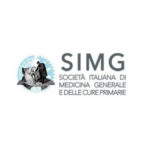
Don’t routinely prescribe Proton Pump Inhibitors (PPI) in patients without risk factors for ulcer disease. In gastroesophageal reflux disease prescribe the lowest dose that can control symptoms and educate the patient to desirable withdrawal periods.
PPI are usually prescribed to avoid drug induced gastropathy. This procedure showed to be effective for NSAIDs, but not for steroids, anticoagulants, antineoplastic agents, antibiotics. PPI intake is related to an increased risk of intestinal and lung infections in the short time, and fracture after one year.PPI are symptomatic drugs for gastroesophageal reflux disease, taken when really necessary (with scheme “as needed “) at the lowest possible dose. In this case, the main therapy discontinuation risk is the intensification of symptoms, which may eventually require a cyclic intake. Some studies have suggested a possible utility of long- term therapy with PPIs in preventing neoplastic degeneration of Barrett’s esophagus. These patients require special cautions.
Sources
1. Katz M. H. Opportunities to decrease inappropriate uses of proton pump inhibitors. Arch InternMed 2011; doi:10.1001/archinternmed.2011.21
2. Bourne C et al, Emergent adverse effects of proton pump inhibitors, Presse Med 2013 Feb; 42(2): e53-62.
3. Singh S, Garg SK, Singh PP, Iyer PG, El-Serag HB. Acid-suppressive medications and risk of oesophageal adenocarcinoma in patients with Barrett's oesophagus: a systematic review and meta-analysis. Gut. 2013 Nov 12. doi: 10.1136/gutjnl-2013-305997
4. AGA. American Gastroenterological Association Medical Position Statement on the Management of Barrett’s Esophagus Gastroenterology 2011; 140: 1084–1091.
Attention. Please note that these items are provided only for information and are not intended as a substitute for consultation with a clinician. Patients with any specific questions about the items on this list or their individual situation should consult their clinician.


Recent Comments